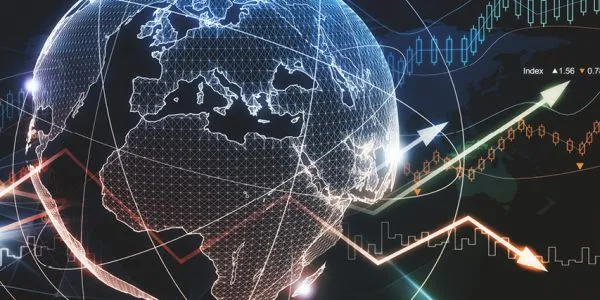As the world watches the U.S. presidential race unfold, it’s becoming increasingly clear that Donald Trump’s political strategy—marked by unpredictability and protectionism—is shaping more than domestic headlines. It’s triggering a global economic shift, pushing countries and regions to reassess their economic models, priorities, and sources of strength.
Rather than sparking decline, this period of uncertainty might be catalyzing a transformation—one in which the rest of the world becomes more self-reliant, assertive, and growth-oriented.

Europe: From Fiscal Austerity to Strategic Investment
Europe has long relied on fiscal discipline and low defense spending, but the new geopolitical landscape has become a wake-up call. In response to increasing security threats and reduced strategic alignment with the U.S., the European Union is shifting its approach:
-
Massive defense mobilization, with up to €800 billion in projected spending across member states.
-
A gradual pivot away from strict fiscal orthodoxy, with more emphasis on public investment, industrial policy, and economic resilience.
This shift could fuel stronger internal demand, a more independent geopolitical stance, and ultimately greater long-term growth potential in the region.
China: From Export Powerhouse to Domestic Engine
Trump’s trade policies and broader decoupling trends have prompted China to look inward, accelerating its shift toward domestic consumption as a growth driver.
For years, China acted as a deflationary anchor for the global economy, exporting cheap goods and excess capacity. Now, with rising wages, supply chain diversification, and strategic focus on self-sufficiency, China could transform into a net source of inflation and growth—a reversal with far-reaching implications for global markets.
The U.S.: Populism, Protectionism, and Inflationary Pressures
Trump’s policy framework emphasizes “Main Street” over “Wall Street”, focusing on domestic manufacturing, tariffs, and border controls. While these policies appeal to populist sentiment, they also:
-
Fuel inflationary pressure through higher input costs and disrupted trade flows.
-
Reinforce the deglobalization trend, especially in sectors like energy, semiconductors, and industrial equipment.
These moves may contribute to more volatile inflation and higher long-term interest rates, altering the global investment landscape.
A Global Economic Shift in Progress
Taken together, these regional shifts suggest a broader global economic shift:
-
From a U.S.-centric system to a more multipolar balance of power, where Europe, Asia, and emerging markets gain influence.
-
From disinflation and globalization to an era marked by higher inflation, protectionism, and regional self-sufficiency.
-
From financial engineering to real economy investment and productivity-led growth.
This shift could lead to a weakening of the U.S. dollar, further supporting capital inflows to emerging markets, which may be positioned for outperformance in this evolving cycle.
The IMF’s World Economic Outlook provides further insight into these global macroeconomic trends.
What This Means for Investors
Investors must remain agile. The current landscape is no longer defined by predictable macro trends, but by regional policy divergence, strategic autonomy, and shifting growth drivers. In this new world:
-
Volatility is structural, not temporary.
-
Growth is becoming more politicized and domestically driven.
-
Currency dynamics and interest rates may no longer follow traditional playbooks.
As uncomfortable as uncertainty may feel, it also creates new opportunity. What we’re witnessing is not the decline of globalization—but its transformation into a more balanced, resilient world economy.
Final Thoughts: The Dawn of a New Global Order
Paradoxically, by embracing unpredictability, the U.S. may be accelerating the rise of the rest. Europe, China, and emerging markets are no longer waiting for clarity—they’re adapting, investing, and asserting themselves.
In this context, Trump may be inadvertently “Making the Rest of the World Great Again.”
Want to better understand the shifting global landscape and its impact on your portfolio? Contact us for a tailored conversation.
Investors who recognize the early signs of a global economic shift will be better positioned to adapt to evolving risks and capture new growth opportunities.
